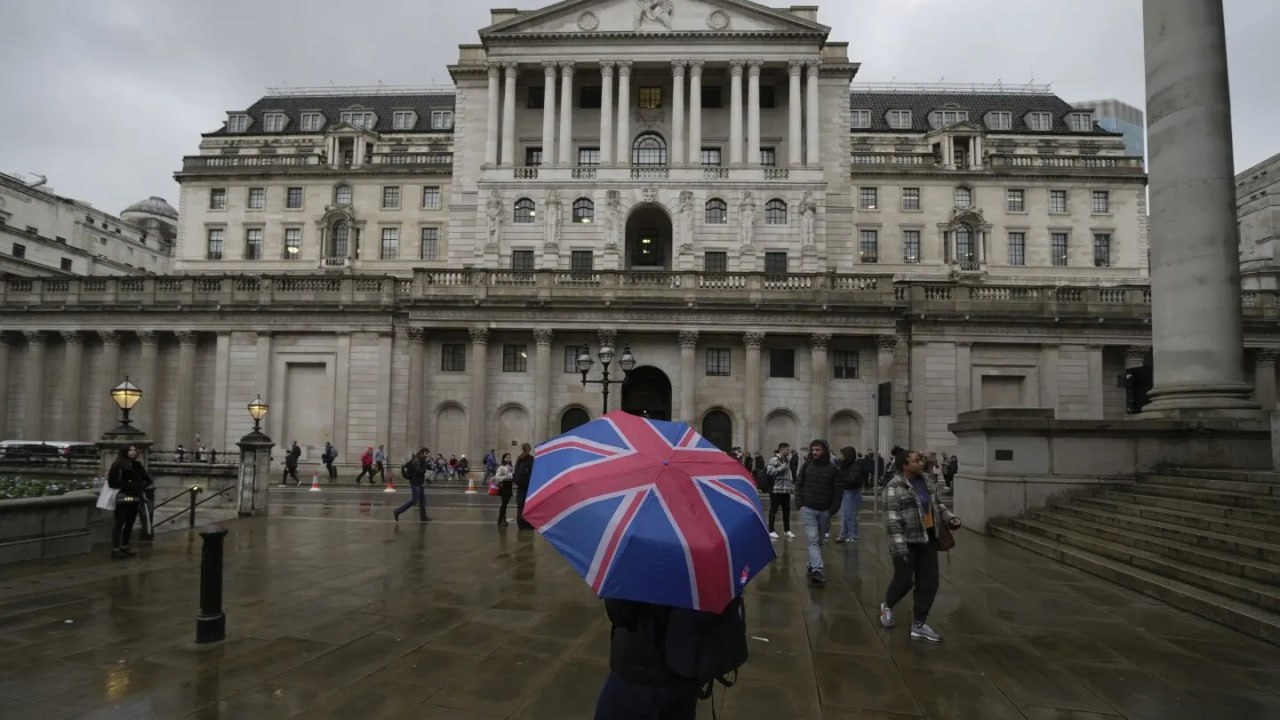
UK Budget Deficit Widens, Pressuring Chancellor Reeves
In December, UK Budget Deficit soared beyond expectations, primarily driven by rising debt interest costs and military property purchases by the government. These financial strains are putting significant pressure on Chancellor Rachel Reeves as she navigates the nation’s fiscal challenges.
£10 Billion Increase in the Budget Deficit
According to the latest data from the Office for National Statistics (ONS), the public sector budget deficit reached £17.8 billion ($22 billion) in December, marking an increase of more than £10 billion compared to the same month last year.
Economists participating in a Reuters survey had anticipated a £14.1 billion deficit, but the actual figures exceeded these projections, signaling greater-than-expected financial difficulties for the UK government.
The Growing Financial Strain on Chancellor Rachel Reeves
During an interview at the World Economic Forum in Davos, Switzerland, Chancellor Rachel Reeves addressed the growing concerns over the state of the UK’s finances:
“The public finances of the UK are under control, but decisions will still be needed to adhere to fiscal rules.”
Reeves’s statement came amid a shifting economic landscape, where conditions have become less favorable since the October 30 budget announcement. The budget, which included higher employer taxes and additional borrowing to revitalize public services, has become more challenging to implement as economic and financial conditions change. This increase in financial pressure may force the government to take further steps to meet its fiscal targets.
Rising Borrowing Costs and Economic Concerns
Earlier this month, a widespread sell-off of UK government bonds, triggered by changes in U.S. interest rates, prompted Chancellor Reeves to announce that measures would be taken to ensure compliance with the government’s fiscal rules.
These fiscal rules include:
- Balancing government expenditures with revenues by the end of the decade.
- Reducing public sector debt as a percentage of GDP.
Despite the increased borrowing costs, UK government bonds have performed better than expected, securing the third-best performance in the G7 countries this year. However, economists, such as Cara Pacitti from the Resolution Foundation, highlight that the full impact of slower economic growth has yet to be reflected in the data. Tax receipts remain strong, but there are still concerns about the nation’s ability to manage its debt obligations.
“With tax payments due at the end of this month and market volatility, there are still significant concerns about the UK’s debt costs,” warned Pacitti.
Key Drivers Behind the Rising Budget Deficit
Two primary factors contributed to the unexpected rise in the UK’s budget deficit in December:
- Interest on Government Debt: The UK government spent £8.3 billion on debt interest payments in December, the third-highest amount recorded for that month. Rising interest rates have led to increased borrowing costs, contributing significantly to the deficit.
- Military Property Purchases: In addition to debt interest, the UK government spent £1.7 billion on repurchasing military properties, further escalating the deficit.
UK’s Growing Debt in FY 2024/25
In the first nine months of the 2024/25 fiscal year, the UK government borrowed a total of £129.9 billion. This amount exceeds the Office for Budget Responsibility’s (OBR) forecast of £125.9 billion, highlighting a growing fiscal imbalance.
The UK’s public sector debt-to-GDP ratio also increased to 84.5% in December, compared to 84.0% in November, signaling a further rise in the country’s debt burden.
Economic Growth: The Government’s Top Priority
Despite the mounting fiscal challenges, Chancellor Reeves reiterated that economic growth remains the government’s primary focus. To underscore this commitment, Reeves also announced the dismissal of the head of the Competition and Markets Authority (CMA) for not prioritizing economic growth adequately.
Summary: A Tightrope Walk for Chancellor Reeves
- December’s budget deficit was £10 billion higher than the previous year, driven by rising debt interest payments and military property purchases.
- Government borrowing costs continue to climb, with the UK surpassing official borrowing forecasts for the current fiscal year.
- Concerns about debt management are growing as tax payments approach and market volatility persists.
- Rachel Reeves has stressed that economic growth remains the government’s priority, despite the significant fiscal challenges.
As the UK grapples with financial strain and rising debt, Chancellor Rachel Reeves faces tough decisions in her bid to balance the budget while adhering to fiscal rules. The path forward will require careful management of public finances, especially as global economic uncertainty continues to shape the UK’s financial outlook.
Share
Hot topics

Best broker for gold trading
There’s always been a certain magic about gold. Before online charts and trading applications, people stored their wealth in coins and bars, trusting that gold would retain its value during...
Read more




Submit comment
Your email address will not be published. Required fields are marked *